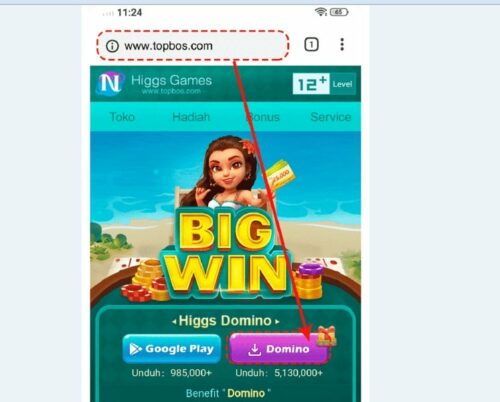In the ever-evolving landscape of digital marketing, businesses are constantly seeking innovative ways to streamline their marketing efforts and drive growth.
One powerful combination that has gained significant traction is the integration of Customer Relationship Management (CRM) systems with Marketing Automation.
This article explores the critical role of CRM in marketing automation, highlighting the benefits it brings to businesses in maximizing their marketing endeavors and improving customer relationships.

Understanding CRM and Marketing Automation
-
- What is CRM?
- What is Marketing Automation?
The Synergy between CRM and Marketing Automation
-
- Enhancing Customer Data Management
- Personalization and Targeting
- Automated Lead Nurturing
Leveraging CRM for Better Customer Insights
-
- Customer Segmentation
- Tracking Customer Interactions
- Behavioral Analysis
Aligning Sales and Marketing Efforts
-
- Streamlined Lead Handoff
- Sales Funnel Optimization
- Customer Journey Mapping
Improving Customer Engagement and Retention
-
- Drip Campaigns
- Triggered Communications
- Loyalty Programs
Measuring Marketing ROI with CRM
-
- Closed-Loop Reporting
- Performance Tracking
- Attribution Modeling
Addressing Common Challenges and Solutions
-
- Data Integration
- User Adoption
- Data Security
CRM and Marketing Automation: Case Studies
-
- Company A: Increasing Conversion Rates
- Company B: Enhancing Customer Loyalty
- Company C: Streamlining Sales Processes
The Synergy between CRM and Marketing Automation
-
Enhancing Customer Data Management
A CRM system serves as a centralized repository for customer data, providing valuable insights into their preferences, behaviors, and interactions with the business. When integrated with marketing automation, this data becomes the foundation for targeted and personalized marketing campaigns.
By segmenting customers based on their demographics, interests, and purchase history, businesses can tailor their messages to resonate with specific audience segments, leading to higher engagement and conversions.
-
Personalization and Targeting
Marketing automation tools, when powered by CRM data, allow businesses to create highly personalized experiences for their customers.
Automated email campaigns can be designed to address recipients by name, recommend products based on past purchases, and even send timely offers and reminders.
Such personalization not only strengthens the customer-business relationship but also boosts brand loyalty, resulting in increased customer retention and repeat business.
-
Automated Lead Nurturing
Effective lead nurturing is crucial for converting prospects into customers. With CRM-integrated marketing automation, businesses can set up automated lead nurturing workflows that deliver relevant content at different stages of the buyer’s journey.
As leads interact with the content and show interest, the CRM system records their actions, enabling sales teams to prioritize and engage with the most qualified leads, thereby accelerating the sales process.
Leveraging CRM for Better Customer Insights
-
Customer Segmentation
CRM data empowers businesses to segment their customer base into distinct groups based on various criteria. By understanding the unique needs and preferences of each segment, marketing efforts can be tailored to address their pain points effectively.
This targeted approach enhances campaign performance, ensuring that the right message reaches the right audience, resulting in improved conversion rates.
-
Tracking Customer Interactions
CRM platforms allow businesses to track customer interactions across various touchpoints, such as website visits, social media interactions, and email engagement. This comprehensive view of customer interactions enables marketers to gain a deeper understanding of customer behavior and preferences, paving the way for data-driven decision-making and strategic marketing efforts.
-
Behavioral Analysis
By analyzing customer behavior patterns through CRM data, businesses can identify trends and tendencies that help in predicting future actions.
This data-driven approach enables marketers to anticipate customer needs, identify potential upselling or cross-selling opportunities, and optimize marketing campaigns to deliver maximum impact.
Aligning Sales and Marketing Efforts
-
Streamlined Lead Handoff
CRM and marketing automation integration ensures a seamless handoff of leads from marketing to sales teams.
When a lead reaches a certain level of engagement or meets specific criteria, the CRM system automatically notifies the sales team, enabling them to follow up promptly. This streamlined process reduces lead leakage and enhances the overall efficiency of the sales pipeline.
-
Sales Funnel Optimization
The combination of CRM and marketing automation allows businesses to map out the entire customer journey, from initial contact to conversion and beyond. By analyzing the data at each stage of the sales funnel, marketers can identify bottlenecks, optimize the customer experience, and improve the overall sales process.
-
Customer Journey Mapping
Understanding the customer journey is crucial for delivering a seamless and consistent experience across all touchpoints.
CRM systems enable businesses to create detailed customer journey maps, helping marketers identify key touchpoints and interactions that influence customer decisions.
With this insight, businesses can fine-tune their marketing efforts to align with the customer journey, increasing the likelihood of conversions.
Improving Customer Engagement and Retention
-
Drip Campaigns
Drip campaigns are a series of automated marketing messages sent to prospects or customers over time.
CRM-integrated marketing automation allows businesses to design and implement drip campaigns that deliver relevant and timely content, nurturing leads and fostering long-term relationships with existing customers.
-
Triggered Communications
CRM data triggers automated communications based on specific customer actions or behaviors. For instance, if a customer abandons their shopping cart, the CRM system can automatically send a personalized email with a discount offer to entice them to complete the purchase. These triggered communications enhance customer engagement and encourage repeat business.
-
Loyalty Programs
CRM systems enable businesses to identify and reward loyal customers through loyalty programs. By tracking customer purchases and interactions, businesses can offer exclusive rewards, discounts, or special offers to encourage repeat purchases and foster brand loyalty.
Measuring Marketing ROI with CRM
-
Closed-Loop Reporting
Closed-loop reporting connects marketing efforts with actual sales and revenue data. CRM integration allows businesses to track the entire customer journey, from the first touchpoint to the final sale, enabling marketers to measure the effectiveness of each marketing campaign accurately.
-
Performance Tracking
With CRM-powered marketing automation, businesses can track key performance indicators (KPIs) and monitor the success of their marketing campaigns in real-time. This data-driven approach empowers marketers to make data-backed decisions and optimize their strategies for better results.
-
Attribution Modeling
CRM systems enable businesses to attribute marketing efforts to specific sales and revenue figures. By identifying which marketing channels and campaigns drive the most significant impact on the bottom line, businesses can allocate their marketing budget more effectively, maximizing ROI.
Addressing Common Challenges and Solutions
-
Data Integration
One common challenge when integrating CRM with marketing automation is data integration. Ensuring that both systems sync seamlessly and share accurate and up-to-date customer data is crucial for successful marketing efforts. Businesses can overcome this challenge by using compatible platforms or employing third-party integration tools.
-
User Adoption
Encouraging user adoption of CRM and marketing automation tools among the team members is essential for their successful implementation. Providing adequate training and support, along with highlighting the benefits of these tools, can motivate team members to embrace the new technology.
-
Data Security
Protecting customer data is paramount for any business. When integrating CRM and marketing automation, businesses must ensure robust data security measures are in place to safeguard customer information from unauthorized access or breaches.
CRM and Marketing Automation: Case Studies
-
Company A: Increasing Conversion Rates
Company A implemented CRM-integrated marketing automation to personalize their email campaigns based on customer preferences and behavior. As a result, they experienced a 30% increase in email open rates and a 25% increase in conversion rates, leading to significant revenue growth.
-
Company B: Enhancing Customer Loyalty
By leveraging CRM data, Company B created a loyalty program that rewarded customers based on their purchase history. The personalized rewards and incentives boosted customer retention by 20%, strengthening the customer-business relationship.
-
Company C: Streamlining Sales Processes
Company C streamlined their lead management process by integrating CRM and marketing automation. This resulted in a 40% reduction in lead response time and a 15% increase in lead-to-customer conversion, enhancing overall sales performance.
Conclusion
The integration of CRM with marketing automation is a game-changer for businesses seeking to enhance their marketing efforts and build stronger customer relationships.
By leveraging the power of CRM data, businesses can deliver personalized and targeted marketing campaigns, optimize the customer journey, and measure marketing ROI effectively.
With CRM and marketing automation working hand in hand, businesses can stay ahead of the competition and achieve sustainable growth in the digital era.
Read More :
 Pmbmalahayati.id Media Informasi Terupdate Masa Kini
Pmbmalahayati.id Media Informasi Terupdate Masa Kini





